Surfing is a special sport that is unlike anything you have ever experienced before in your life. The state of mind brought on by an active connection with the raw elements of the ocean, wind, and waves brings a mental balance that flows through your body. With being such an incredible and rewarding experience, it is one of the most challenging and complex sports to master.
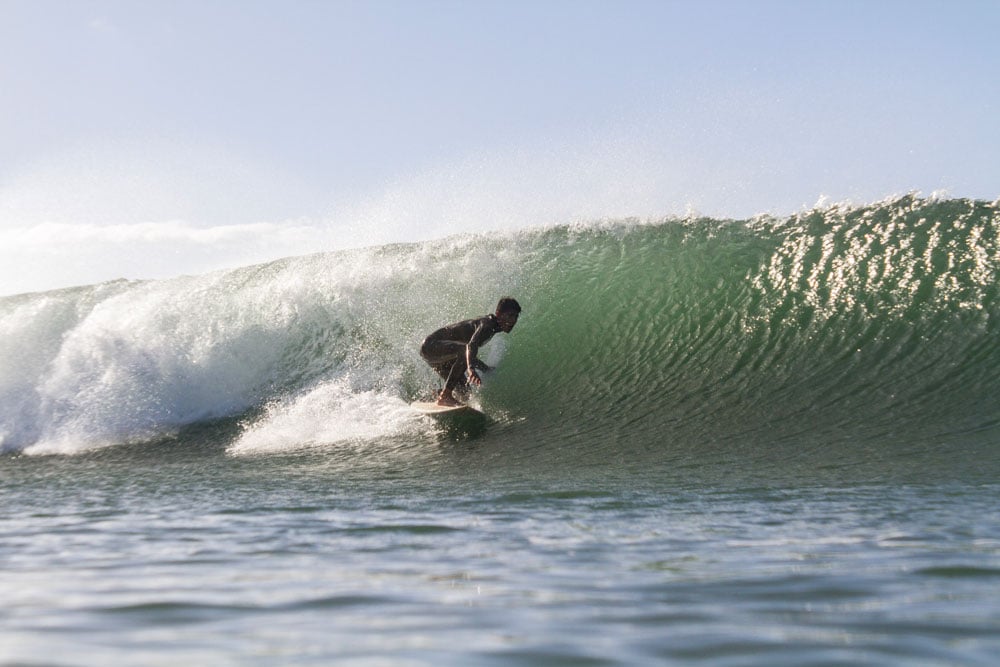
When it comes to surfing, hard work pays off. The freedom and pure joy that overcomes your soul when you push yourself to take on the natural elements in the ocean is an experience unlike any other.
Yes, surfing is hard- but anyone can do it if they put in the effort. Here are five things you should know before you dive into the world of surfing and what expectations you should have before beginning this incredible sport.
Surfing requires lots of Patience
Do not expect surfing to be like other sports that you can pick up within hours or days. Realistically, it can take weeks, months, or even years, to be able to consistently catch good waves. Since the surfing environment is always changing, it takes time on the water and tons of first-hand experience to learn and read waves.
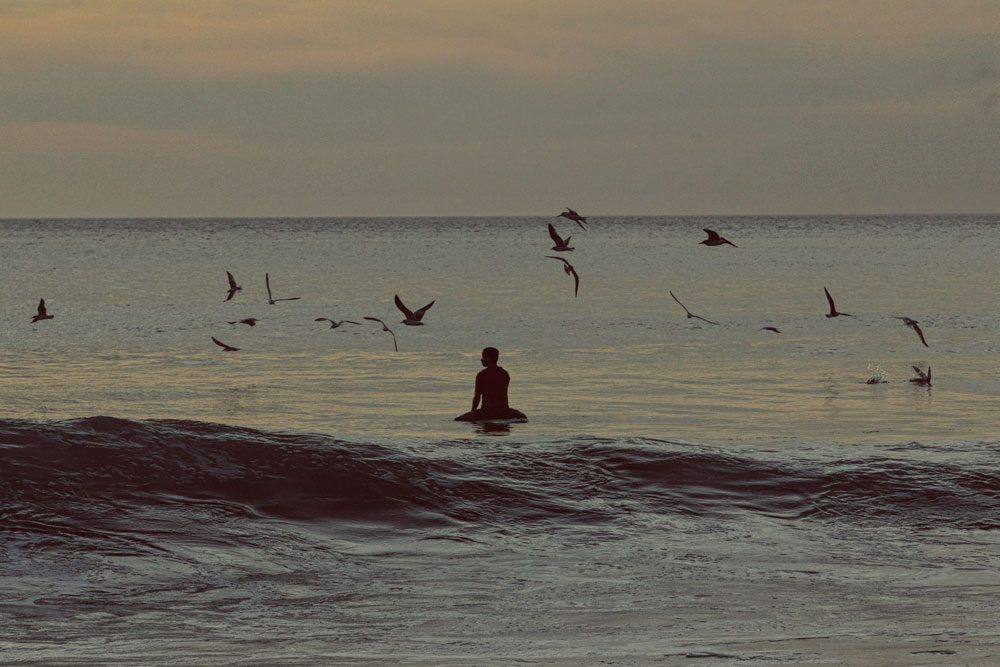
In fact, the surf conditions are constantly changing each day and can even drastically change by the hour. There are so many different variables that can affect the surf- wind, waves, ocean floor, tides, and the environment. All these different variables help make various beaches unique and give them different sizes and styles of waves. This makes surfing difficult in the sense that each day on the water may present different challenges and test your abilities.
Surfing is also unique in that it may take a long time for the right wave to come around. This could mean that you are out there for quite a while- patiently waiting for the right set of waves and the perfect position. You will find that having that time to relax the mind and to read the waves is welcoming before gearing up to rip a big wave.
Be Prepared to Wipe Out (A LOT)
If you have ever gone snowboarding, then you might have felt that you “had it” after a few sessions. You might have fallen on your butt many times the first few days, but you rarely fell once you got in the groove.
Don’t expect the same kind of generosity from surfing.
As a beginner, you will fall and wipe out constantly, and it is important to keep a cool head on your shoulders and learn to roll with it rather than fight it.
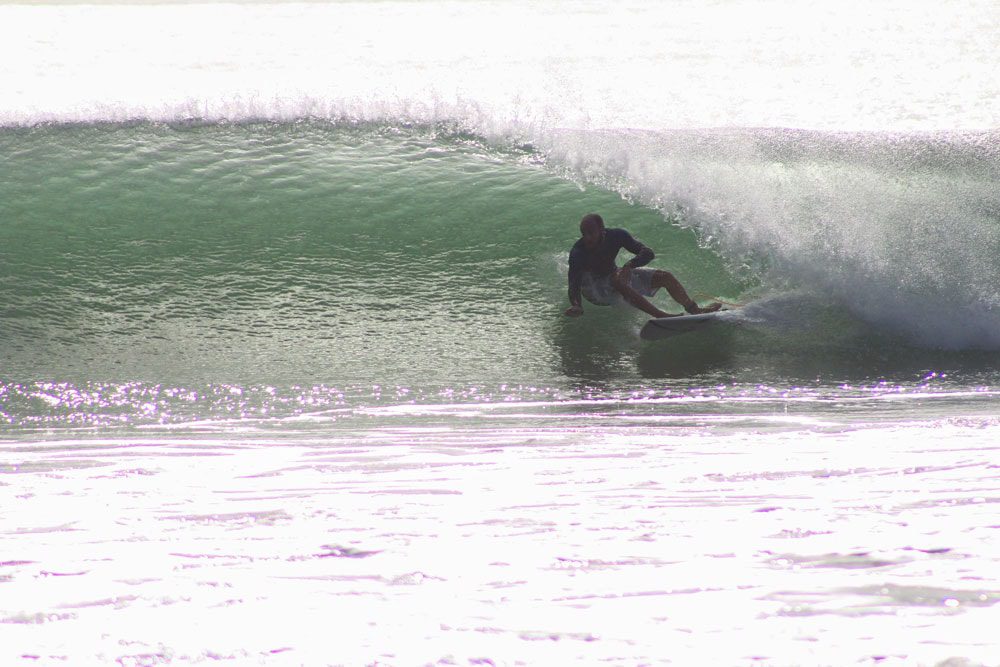
In fact, even intermediate and advanced surfers wipe out all the time. It is more about accepting and understanding that it is a part of surfing rather than trying to completely overcome it.
When you first begin surfing, it can be scary being held down under the waves following a wipeout. Being caught underwater for longer than you would like can question your desire to surf as well as be a traumatic experience. That’s why it is important to understand how to handle a wipeout like a pro and to have calm and relaxed breathing. Here are some good general tips when handling a wipeout:
- Fall butt first and away from your board.
- Don’t immediately fight for the surface and lose your energy when caught under a wave.
- Familiarize yourself with the underwater surroundings.
- Cover your head and face.
- Practice meditative breathing exercises and overall- stay calm.
- Take control of your board when you surface.
Most importantly, you will want to stay calm when caught under a wave. It is natural for beginners to panic while being underwater too long with the feeling of total helplessness. Having control of your mind and stress levels will allow you to conserve more oxygen and retain your air supply for a longer period.
Don’t Surf in Conditions Outside your Comfort Zone
It is important to evaluate the beach conditions before going out on the water and making the conscious decision on whether it is safe for your current abilities. While you may be eager to try and surf waves like more experienced surfers, it could potentially make for a bad day on the water or worse- place yourself or others in danger.
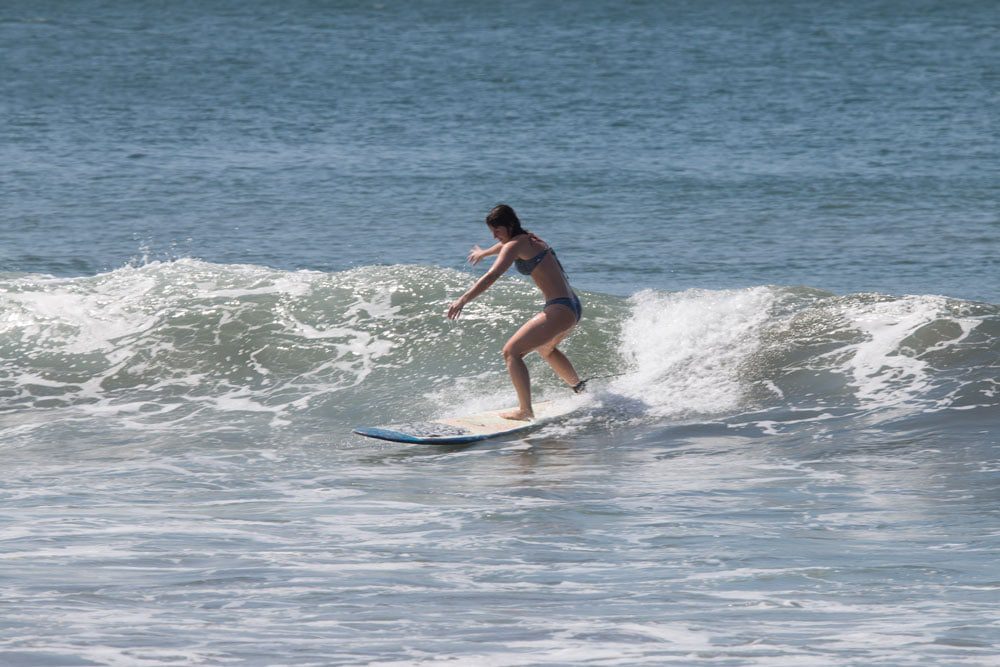
If you try to catch waves that are out of your skill range, then it could put you in a bad place mentally and could potentially set you back in your progress as a surfer. It could also mean a broken board or running into another person in the water.
Overall, make sure that you take the time to assess the surf conditions and make the right choice on safety before going out on the blue. It is always helpful to take 10-15 minutes on the beach to watch the waves and get a feel for the current situation.
If you are a beginner, then choosing a beach with smaller waves is essential for being able to improve your skills. Also, a beach that is uncrowded will help you feel more comfortable with learning to surf without having to worry about the hazards of other people in the water.
A beach like Playa Escameca, right outside of Costa Dulce Surf and Yoga Retreat, would be a great option since the waves are often geared for beginners and intermediate riders as well as being a more private beach when compared to nearby breaks.
If you are interested in learning about one of our surf retreats, drop us a line and we will find an option that fits your needs. There is something for everyone regardless of if you have never surfed in your life or if you already feel comfortable on the waves.
Take a Few Lessons to Learn the Basics
Most of your surfing knowledge will come from just spending time out on the water but having a few lessons, in the beginning, will help you learn the correct techniques as well as have proper form.
Before even getting in the water, having an instructor teach you the “pop-up” on the beach will go a long way in making sure that you can start catching waves as soon as possible.
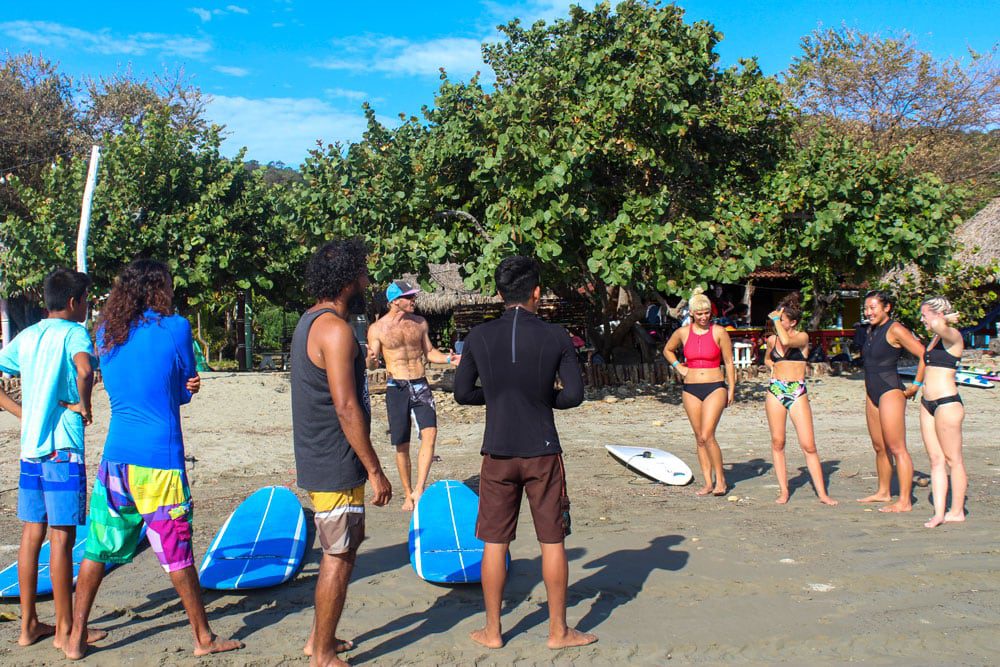
When working with a surf instructor, you can expect to gain valuable insights with:
- The “Turtle Roll” & “Duck Dive” – Effectively making it through whitewater.
- Proper Stretching – Warming up your body is essential to avoiding injuries and being able to ride at peak performance.
- Reading Waves – While it can take years to have a good understanding of how to read waves, an instructor can give you some tips when looking out in the big blue waiting for that perfect swell.
- How to Fall – An instructor can teach you how to properly fall on a surfboard- which will help keep you safer in the water and avoid environmental hazards.
- Popping up on a Board – Drilling muscle memory of the board pop-up technique on the beach will ensure that you are better equipped to take on the waves with the correct form.
While you may not need tons of surf lessons to get up and ride, having at least one or two lessons will go a long way for your progress. Trust me, you will not regret it.
Surfer Etiquette: Respect Others and Don’t Drop In
Surfer etiquette is something that you should most definitely be aware of before going out on the water. Having respect for yourself, the environment, and the other people around you is such a major part of what makes a surfer. Keep in mind before you surf at some of these beaches that there might be locals there that have made that beach their home and have been there for all their life. It is important to respect their space as well as any others around you.
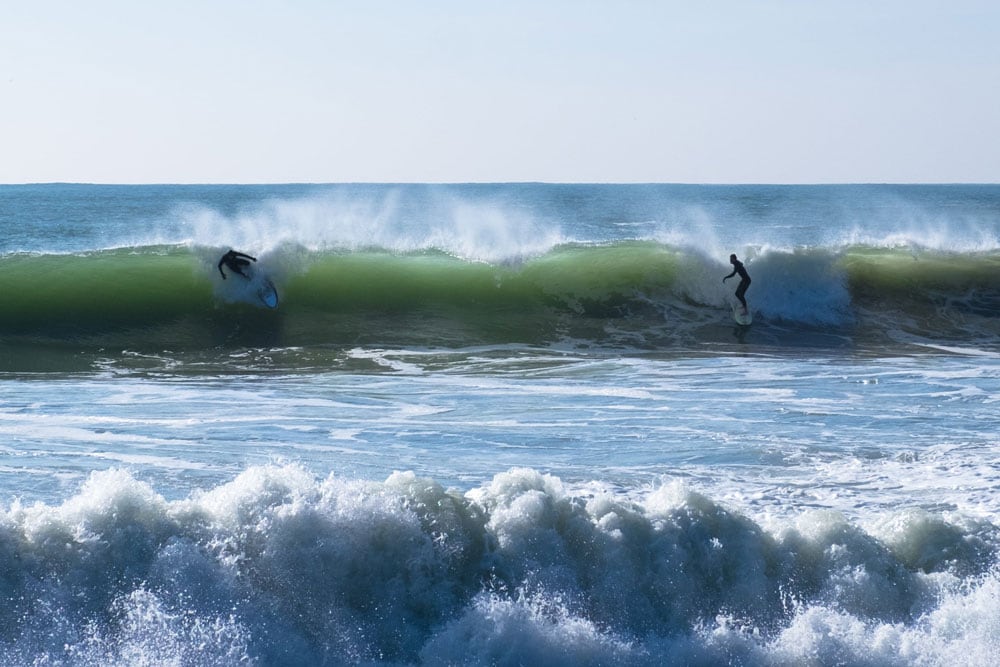
Whatever you do, do NOT drop in on another surfer’s wave! You do not want to be the one getting in the way of someone else taking on that “perfect line”. The cardinal rule is this: the surfer who is closest to the peak will have the longest line and has the right of way. If another surfer is closer to the peak of a right-hand wave and you are on the right side of him, he has the priority.
While mistakes happen, having a clear understanding of the “unwritten” rules as well as knowing general safety in the water will go a long way with respect to other surfers. Like with any part of life, go out with respect for all those around you and treat everyone else with kindness.
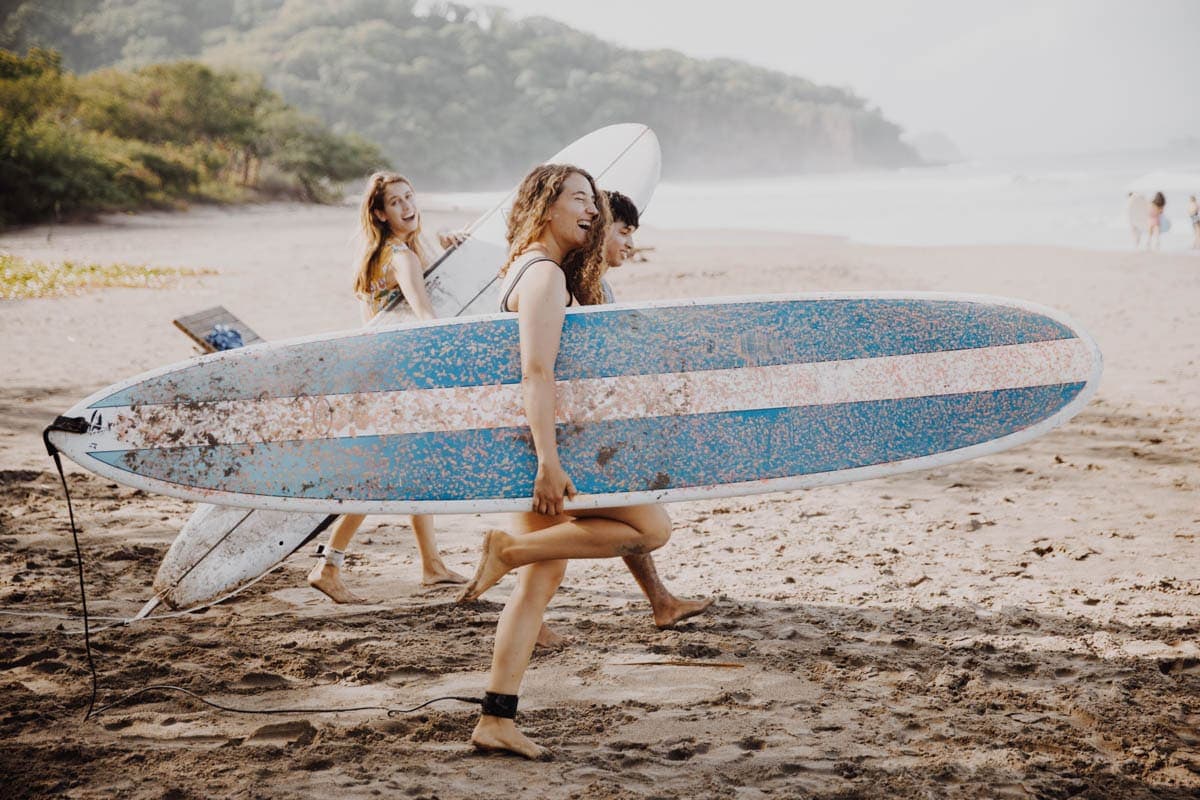
Surf in Private Paradise
Costa Dulce provides the perfect opportunity to learn how to surf. This is your chance! Nicaragua is a great place to learn but many try and do it at the crowded and more popular surf breaks. Learn more about our Surf Camp Program.
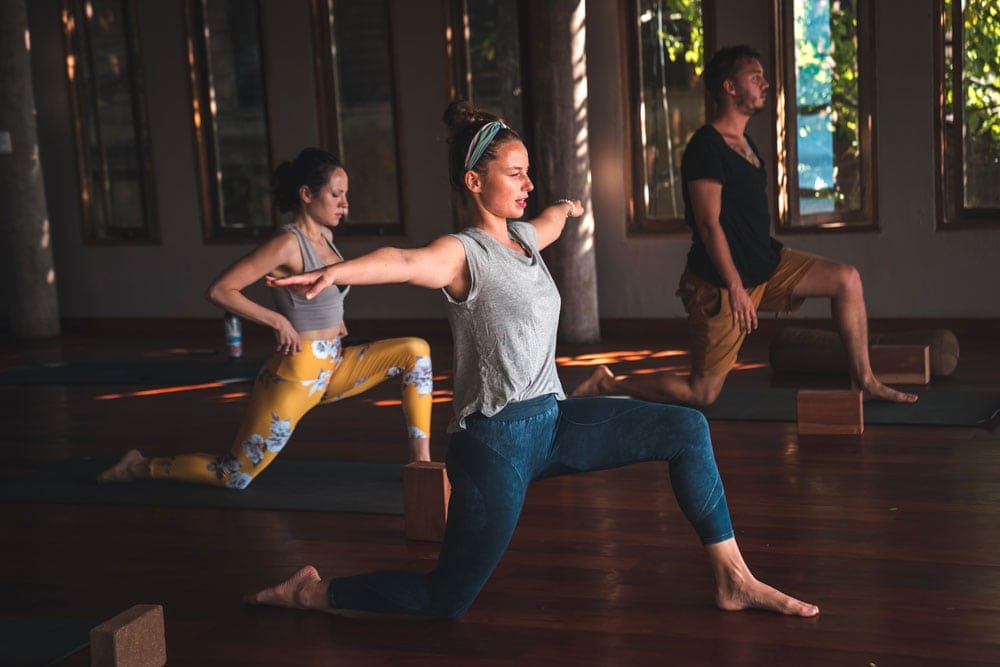
Yoga Retreat Packages
Yoga is a crucial element of our life here at Costa Dulce since it is the foundation of the holistic lifestyle we embody. Yoga and wellness is the key to take care of ourselves, our surroundings, and the people we love. Learn more about our Yoga Retreat Program.

Relax with our Spa Treatment
Treat your body with a relaxing massage, nourish your body/face with a natural mask or energize your body and skin with our signature coffee/ coconut oil scrub, two of Nicaragua’s finest ingredients. Learn more about our Spa & Wellness services.
Recent Posts
Digital Nomad in Nicaragua
Hola all you wandering souls. You wander the globe in a new found freedom that no generation has ever had before. Interested in living in the land of lakes and volcanoes, Nicaragua? I invite you to live in a dream. A true eco paradise. On a beach nestled in a...
Elemental Yoga Flow: Embodying Earth, Water, Fire, Air
Elemental Yoga Flow So many of us have the word flow misunderstood. It’s a very yogi word that’s blowing across all of our vocabulary. We say things like I don’t like to plan things out or I am all over the place or just go with the flow. Just because it rhymes...
Best Time to Surf in Nicaragua
Best time to Surf in Nicaragua is now! As a surfer every single day of your life is the best time to surf. But we can get a little more specific depending on where you are as a surfer. Different styles and skill levels have different ideas on what is the best surf in...


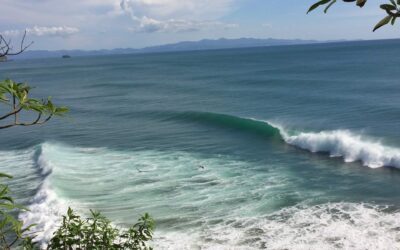
0 Comments